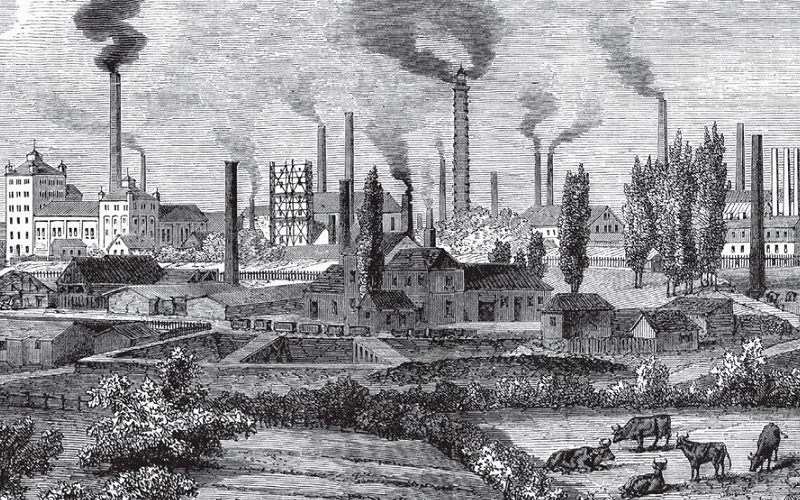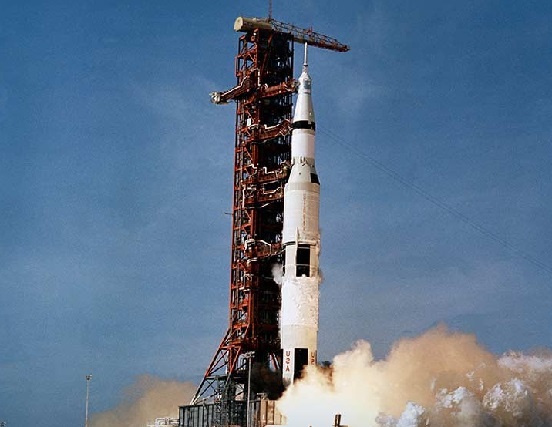
modern world
The central argument of The Global Transformation is straightforward: during the 19th century, this transformation remade the basic structure of international order. This involved a complex configuration of industrialization, rational state-building, and ideologies of progress. What do we mean by these terms?
By industrialization we mean both the commercialization of agriculture and the two-stage industrial revolution, which together both shrank the planet and generated an intensely connected system of global capitalism. The extension of capitalism brought new opportunities for accumulating power, not least because of the close relationship between industrialization and dispossession. Indeed, industrialization in some places (such as Britain) was deeply interwoven with the forceful de-industrialization of others (such as India).

By rational state-building, we mean the process by which administrative and bureaucratic competences were accumulated and ‘caged’ within national territories. This process was not pristine. Rather, as we show in the book, processes of rational state-building and imperialism were co-implicated – most 19th century nation-states in the West were imperial nation-states, and imperialism ‘over there’ fed into rational state-building ‘at home’: the modern, professional civil service was formed in India before being exported to Britain; techniques of surveillance, such as fingerprinting and file cards, were developed in colonies and subsequently imported by the metropoles; cartographic techniques used to map colonial spaces were reimported into Europe to serve as the basis for territorial claims. Old professions, such as farm laborer and prostitute, started to become less relevance as a more modern workforce became necessary.
Domestically, rational states provided facilitative institutional frameworks for the development of industry, technological innovations, weaponry and science; abroad, they provided sustenance for imperial policies. Both functions were underpinned by ‘ideologies of progress’.
By ‘ideologies of progress’, we mean assemblages of beliefs, concepts and values that address how polities, economies and cultural orders relate to each other, how individuals and groups fit into these assemblages, and how human collectivities should be governed. Four ideologies in particular had a big impact: liberalism, socialism, nationalism and ‘scientific racism’, all of which were rooted in ideas of classification, improvement, control and progress (including ‘scientific racism’, many of whose proponents favored a ‘forward policy’ in which European imperialism was hardened, both to safeguard white gains and to combat miscegenation with ‘backward’ peoples).
Again, there was a dark side to these ideologies (and not just with ‘scientific racism’) – the promise of progress was linked closely to a ‘standard of civilization’ which served as the legitimating currency for coercive practices against ‘barbarians‘ (understood as peoples with an urban ‘high culture’ – the ‘Oriental Despotisms’ of the Ottomans, Indians, Chinese, etc.) and ‘savages’ (understood as peoples without an urban ‘high culture’ – virtually everyone else). These ideas ended the long dominance of the dynastic state and defined the social framework of modernity. Nothing of comparable weight has come into being since, so these ideas, and the interplay among them, not only defined the dynamics of legitimacy and conflict during the 20th century, but continue to dominate the 21st century.
The three components of the global transformation were mutually reinforcing. For example, European imperialism was legitimized by one or more of the ideologies of progress, and enabled through military superiority, mechanisms of state control and infrastructural developments that had their roots in industrialization, according to thedisorderofthings.com.
To be clear, our argument is not that any one of these dynamics on their own could have constituted the global transformation. Nor is it than any one of them deserves the status of ‘ultimate primacy’. Rather, we see the global transformation as enabled by a specific configuration of all three dynamics: as a set of interlinked processes that concatenated in historically specific form. And this configuration produced a profound transformation, generating a shift from a ‘polycentric world with no dominant centre’ to a ‘core-periphery’ order in which the centre of gravity resided in the West.

Interesting article. Especially liked reading about the concept of ‘ideologies of progress’, which I had never heard about before.